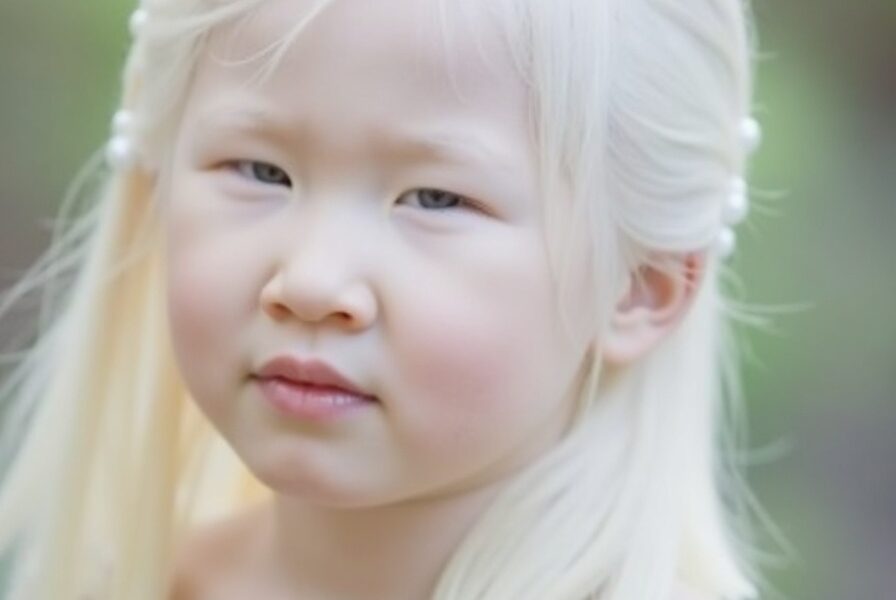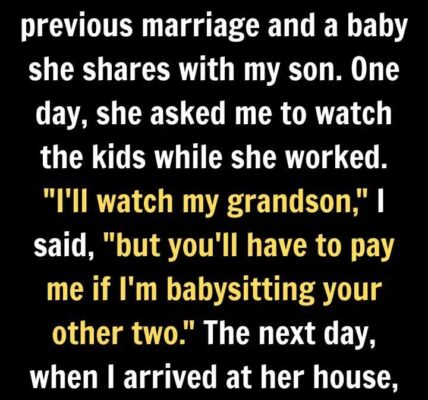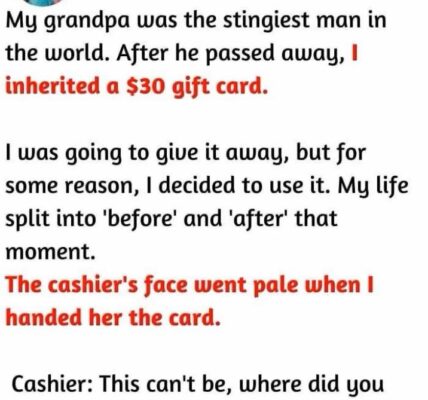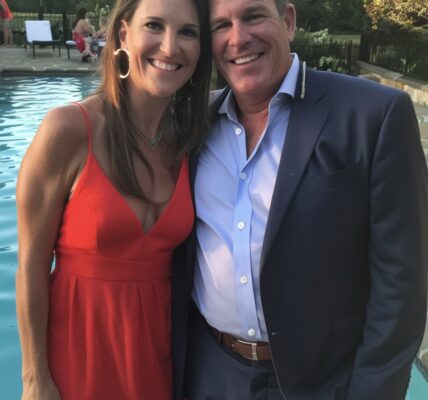A baby girl born with albinism was abandoned by her parents, She looked too weird for them and left her at an orphanage door
There is something deeply moving about the story of Xueli Abbing — a tale that starts with heartbreak but unfolds into a journey of courage, resilience, and hope. It is the story of a girl the world tried to cast aside, and of how she turned that rejection into a powerful message for millions. It’s about how beauty, purpose, and worth are not dictated by where you begin, but by what you choose to become.
Xueli entered the world in China under circumstances that would shape her life in unexpected ways. From the very start, she was marked as “different.” She was born with albinism — a rare genetic condition that affects the production of melanin, the pigment that gives color to our skin, hair, and eyes. Children with albinism often have pale skin, light hair, and sensitive eyesight. But in some parts of the world, they are seen as much more than just different. Myths and superstitions surround them. Some people believe they carry magical powers. Others think they bring bad luck. In some regions, children like Xueli are even hunted for their body parts, which are falsely believed to hold healing powers. Against that grim backdrop, the fact that she was merely abandoned rather than harmed was, tragically, a kind of mercy.
When Xueli was only a baby, her parents left her at the door of an orphanage. They didn’t leave a note. They didn’t come back. Perhaps they feared society’s reaction. Perhaps they believed she would never be accepted. Whatever their reasons, they walked away from their daughter because of how she looked. “I’m lucky I was only abandoned,” she would say years later, with a maturity far beyond her age. Those words reveal the harsh reality she was born into — a reality in which survival itself was a miracle.
But fate had other plans for her. The staff at the orphanage gave her a name: Xueli. It was not a random choice. “Xue” means “snow,” and “Li” means “beautiful.” Together, the name translates to “snow beauty” — a poetic, hopeful message that her uniqueness was not something to hide but something to cherish. Even before she had a family, someone believed she deserved a name that reflected the special light within her.
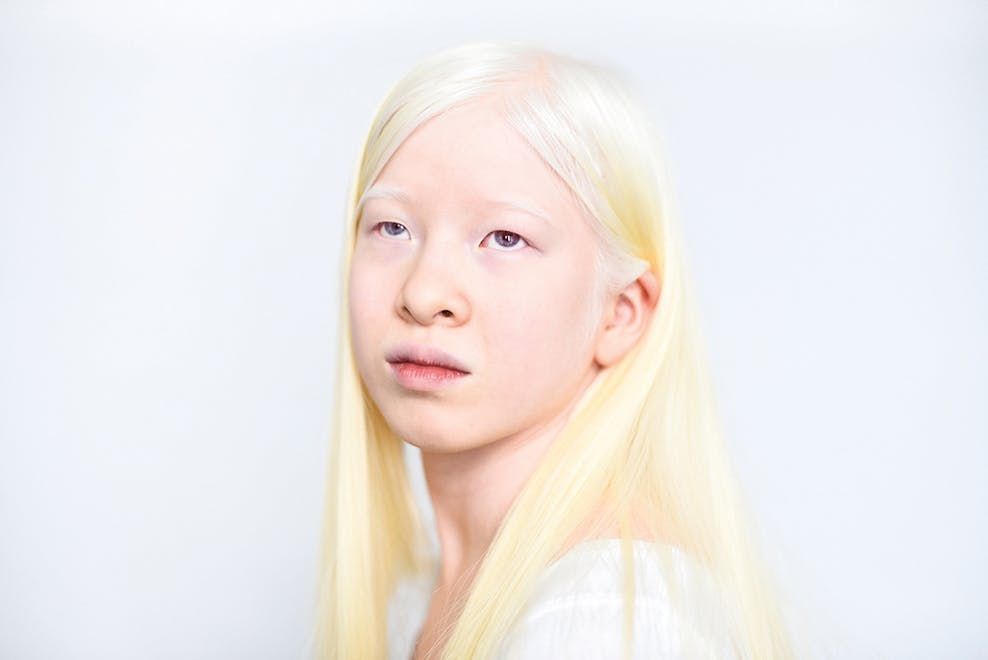
Life at the orphanage was not easy, but it was a safe place where she could grow until her future became clearer. And one day, it did. A Dutch family thousands of miles away decided to adopt her. They welcomed her into their home in the Netherlands, giving her the love, security, and support every child deserves. In this new environment, Xueli was no longer a child to be pitied or hidden — she was a daughter, a sister, and a person whose differences were celebrated rather than scorned.
With her adoptive family’s encouragement, she grew up confident and curious about the world around her. She learned to embrace the things that made her unique, even though life with albinism came with challenges. Her vision was limited, and she had to be careful in the sun. But these were just details, not definitions. And they never stopped her from dreaming.
When she was 11 years old, an unexpected opportunity came knocking. A designer in Hong Kong reached out with an invitation that would change her life. They were organizing a photo shoot to showcase “perfect imperfections” — a project celebrating diversity in beauty. Xueli was invited to participate and even to walk in a fashion show. For a girl once abandoned for looking different, stepping onto a runway was more than a career break. It was a moment of transformation. “It was a fantastic experience,” she later told the BBC. That moment marked the beginning of a journey no one — not even Xueli herself — could have imagined.
The world of fashion is notoriously unforgiving. It has long been dominated by narrow standards of beauty — tall, thin, symmetrical, and conventional. But slowly, that world has started to change. People are beginning to demand representation that reflects the real world — a world full of diversity, individuality, and difference. Xueli’s presence on the runway was part of that change.
Her first photo shoot led to more opportunities. A London-based photographer noticed her and became a mentor, making sure she was treated with respect and care in an industry that often forgets the humanity of its models. Together, they built a portfolio that captured not just her appearance, but her spirit — a quiet strength and natural grace that made her stand out.
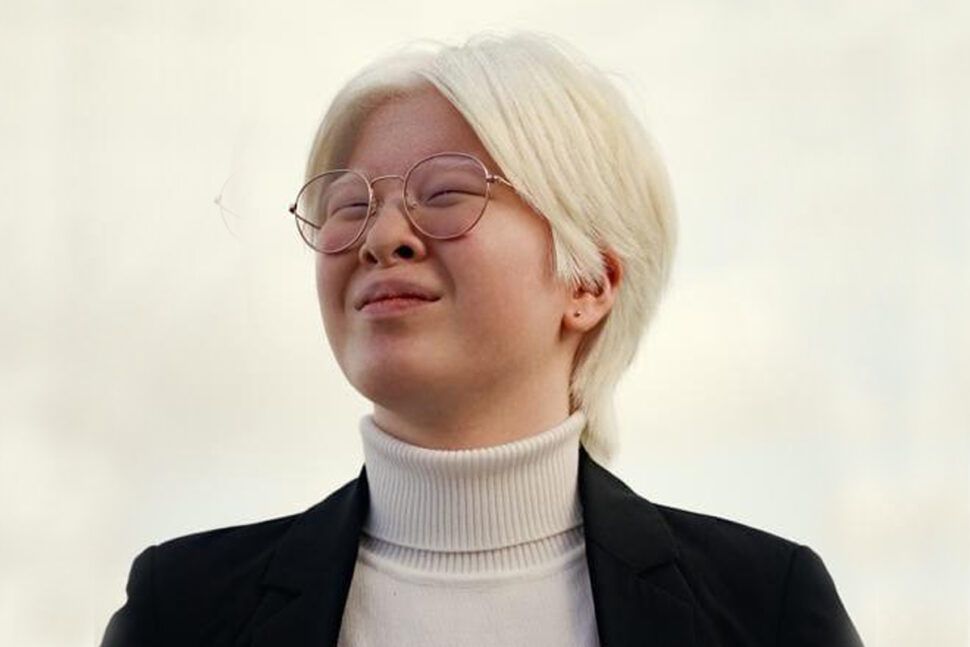
Then, in June 2019, something extraordinary happened: Xueli was featured in Vogue Italia, one of the most prestigious fashion magazines in the world. For many models, being published in Vogue is a career-defining moment. For Xueli, it was something deeper. It was a message to every child who has ever been told they don’t belong. It was proof that beauty is not limited by society’s narrow definitions. “At the time, I didn’t know what an important magazine it was,” she admitted. “It took me a while to realize why people were so excited.” Her appearance wasn’t just a win for her — it was a statement to the world.
Xueli’s rise in the fashion industry has coincided with a broader cultural shift. Models with visible differences — from vitiligo to prosthetic limbs to genetic conditions like albinism — are beginning to appear on runways, in campaigns, and on magazine covers. This is progress, but Xueli is the first to admit there is still a long way to go. “There are still models who are eight foot two and skinny,” she said with a laugh. “But now people with disabilities or differences are featured more in the media. This is great — but it should be normal.” For her, diversity in fashion shouldn’t be a trend. It should simply reflect the world as it is.
Living with albinism has shaped the way Xueli sees the world — quite literally. Because of her limited vision, she pays closer attention to things most people overlook. “Maybe because I cannot see everything properly, I focus more on people’s voices and what they have to say,” she explained. “So their inner beauty is more important to me.” This perspective is a gift — a reminder that what truly matters about a person cannot be captured in a photograph or measured by a fashion standard. It’s something deeper, something invisible to the eye.
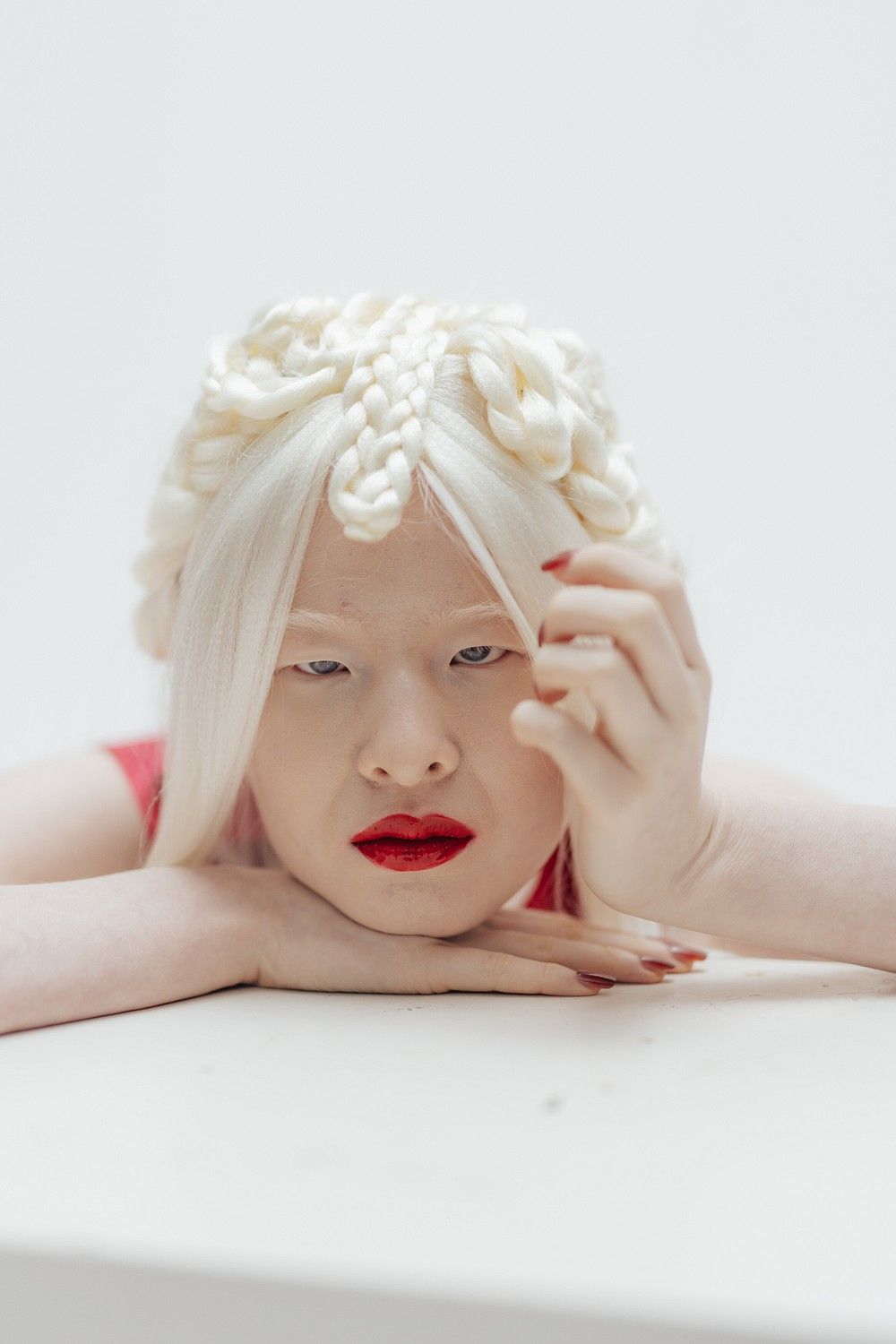
But modeling is just one part of Xueli’s story. As she grew older, she began to see her platform as a tool for something bigger than herself. Now in her late teens, she has become an outspoken advocate for people with albinism. She speaks publicly about the challenges they face and works to change how society talks about the condition. Words matter, she insists. That’s why she prefers “person with albinism” rather than “an albino.” The latter reduces a person to a diagnosis. The former puts their humanity first.
Her advocacy goes beyond language. Xueli is determined to fight the deadly stigma that continues to threaten people with albinism in some parts of the world. In countries where superstition still fuels violence, she speaks out loudly and clearly: this must end. “I won’t consent to the idea that children are being killed because they are albinos,” she said firmly. “I want to transform the world.” Those are not empty words. They are a mission — one she is pursuing with the same courage and resilience that have defined her life since the day she was born.
What makes her story so powerful is that it’s not just about overcoming personal obstacles. It’s about transforming pain into purpose. The little girl left on the doorstep of an orphanage has become a voice for thousands who cannot speak for themselves. The child once labeled as “different” has become a face of beauty on some of the world’s biggest stages. The teenager once told she would never belong is now shaping conversations about inclusion, representation, and dignity.
Her journey is far from over. If anything, it’s just beginning. The modeling world is opening its doors wider than ever before, and Xueli is walking proudly through them. Brands are taking notice. Audiences are listening. And children born with albinism — or any visible difference — are seeing someone who looks like them not just survive but thrive.
From the steps of an orphanage in China to the glossy pages of international fashion magazines, Xueli’s story is a testament to the power of resilience and the importance of acceptance. It shows us that the qualities once used to reject someone can become the very reasons they are celebrated. It reminds us that beauty is not a single, rigid idea but a vast, colorful spectrum — one that includes every shade, every shape, and every story.
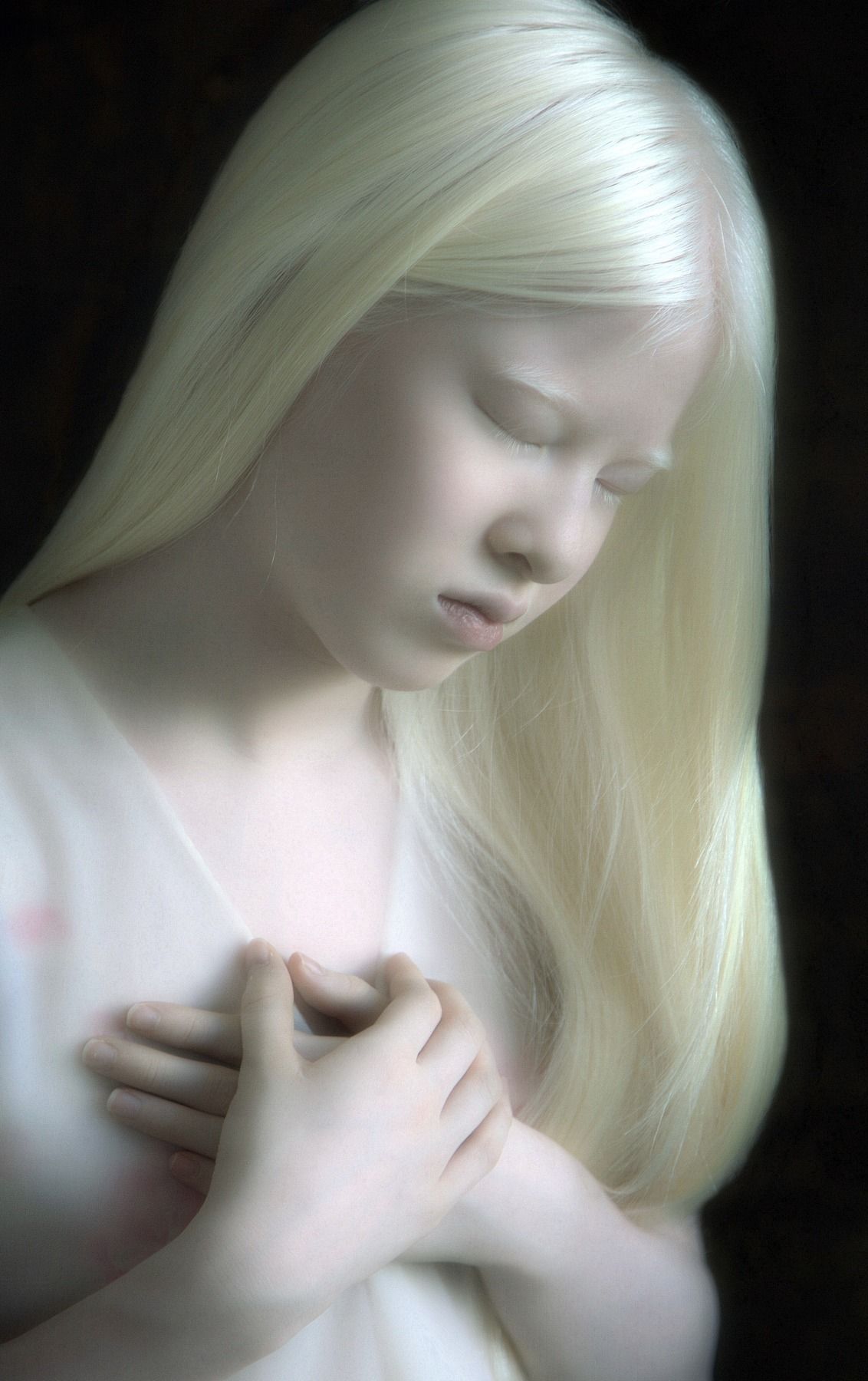
Most of all, her journey teaches us about the strength that comes from embracing who we are. It’s a strength that grows not from denial but from ownership — from looking in the mirror and refusing to be ashamed of what we see. Xueli does not wish away her albinism. She does not see it as a flaw to hide. She sees it as part of who she is — a part that has shaped her life, given her purpose, and fueled her fight to make the world a better place.
The girl who was once left behind now walks with the world watching her. And with every step she takes down a runway, with every photo that graces a magazine page, with every word she speaks against injustice, she rewrites the story that began the day she was abandoned. She shows us that beginnings do not define endings — and that sometimes, the most beautiful lives start in the darkest places.
Her story is still being written. But one thing is certain: Xueli Abbing is no longer just a name given to a baby left on a doorstep. It is a name that now stands for courage, for change, and for the boundless beauty that lives inside every human being — no matter how different they may seem.
